It is well-accepted that the endogenous antioxidant protection system progressively decays in elderly people, and that the oxidative stress contributes to different neurodegenerative disorders such as Alzheimer’s Diseases (AD). The lower incidence of AD in countries which feature the Mediterranean Diet was associated to the high consumption of extra virgin olive oil and its polyphenolic fraction, in particular hydroxytyrosol. The protective role of these bio-phenols against oxidative stress, suggested that we combine their antioxidant/free radical scavenging activity with donepezil, an active ingredient which has just been approved for the treatment of AD.
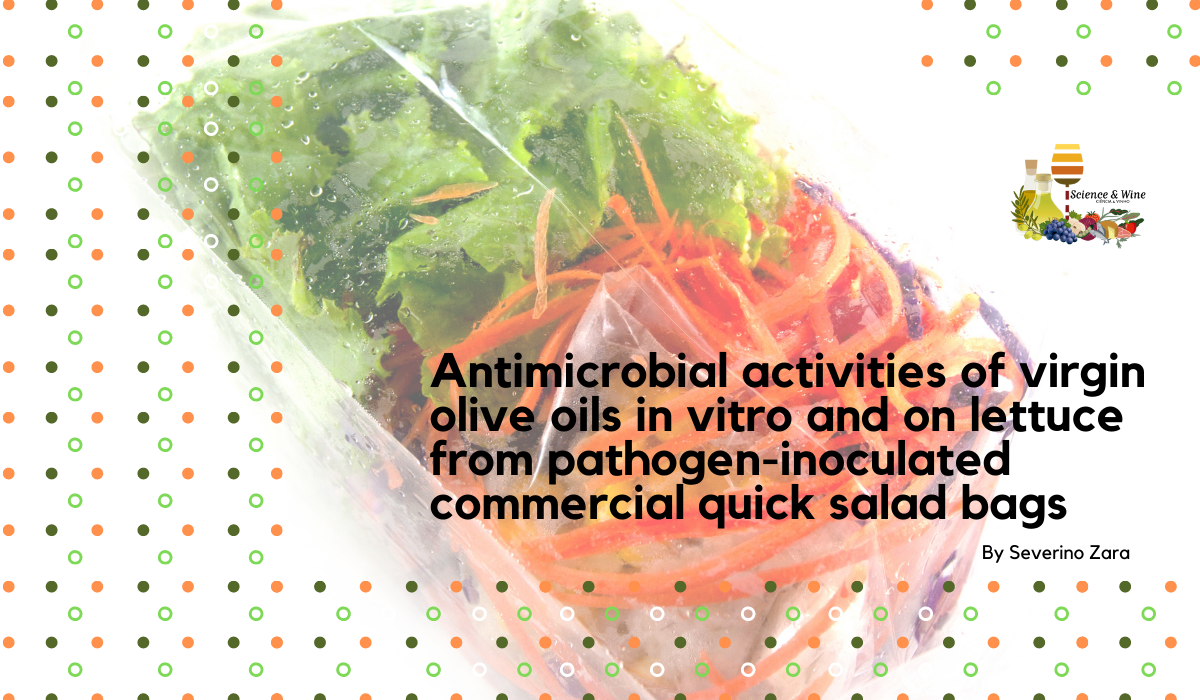
Antimicrobial activities of virgin olive oils in vitro and on lettuce from pathogen-inoculated commercial quick salad bags
Virgin olive oil (VOO) provides an important source of healthy compounds. Its high concentrations of monounsaturated fatty acids and phenolic compounds contribute toward its nutritional, antioxidant, and antimicrobial properties. VOO is used in the preparation of many dishes worldwide and forms a staple of the Mediterranean diet; however, the antimicrobial activity of VOO in food matrices has been investigated very little to date. Considering this and the growing demand to reduce the use of synthetic antimicrobials and chemical food preservatives, especially in minimally processed foods, the aim of this work was to evaluate the antibacterial activity of VOOs obtained from 13 different Italian olive varieties. This study provides evidence supporting that VOOs with determinate polyphenols profiles might be used as antimicrobial ingredients in minimally processed foods to significantly reduce the presence of pathogenic bacteria.
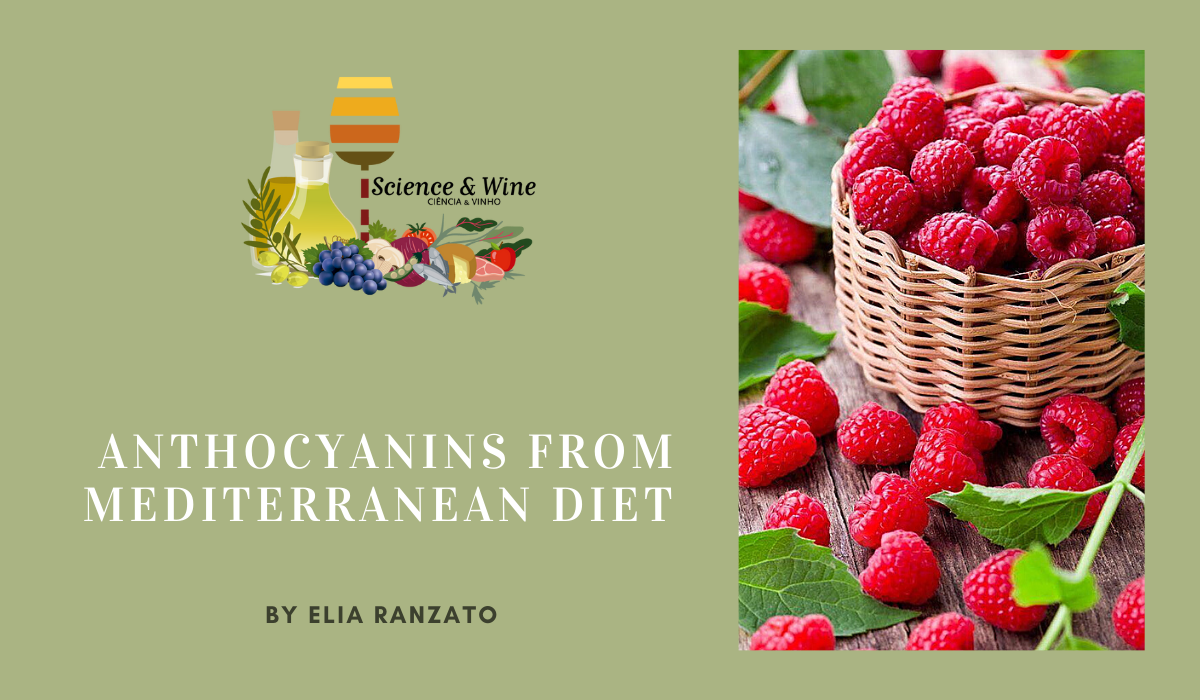
Anthocyanins from Mediterranean Diet
The Mediterranean diet (MD) is becoming a milestone for the prevention of chronic diseases, such as cardiovascular diseases (CVDs), Alzheimer’s and Parkinson’s disease. Ancel Keys in the 1950’s showed a low mortality rate, particularly for coronary heart disease, among people resident in the Mediterranean area. The MD is characterized by the intake of the high amount of vegetables, fruit, and cereals and regular but moderate consumption of wine, fish, and dairy products, while olive oil is the main source of culinary fat. Therefore, it is principally a plant-based diet rich in polyphenols, a heterogeneous category of compounds with different properties and bioavailabilities. Among polyphenols, anthocyanins have been combined into the human food regime for centuries. They have been utilized as traditional herbal remedies for their ability to treat several conditions, as potent anti-oxidants, anti-diabetic and anti-carcinogenic compounds. This review summarizes our knowledge on the health-enhancing component of the anthocyanins-rich diet.

Pitted drum-dried olive pomace: A source of healthy phenolics and fiber for food and feed applications
Olive pomace (OP) is the main by-product of olive oil extraction. After pit and skin removal, OP pulp has high concentrations of dietary fiber and phenolics with high antioxidant capacity. This study evaluated mice health benefits of drum-dried pitted OP pulp obtained after first and second oil extraction. Drum-dried pitted olive pomace can be produced from first or second olive oil extraction byproducts to be used as a shelf-stable healthy food or feed supplement.

Mediterranean Diet and Breast Cancer
This post reports the results of the first randomized trial finding an effect of a long-term dietary intervention on breast cancer incidence. The results suggest a beneficial effect of a Mediterranean diet supplemented with extra-virgin olive oil in the primary prevention of breast cancer. These results come from a secondary analysis of a previous trial and are based on few incident cases and, therefore, need to be confirmed in longer-term and larger studies.
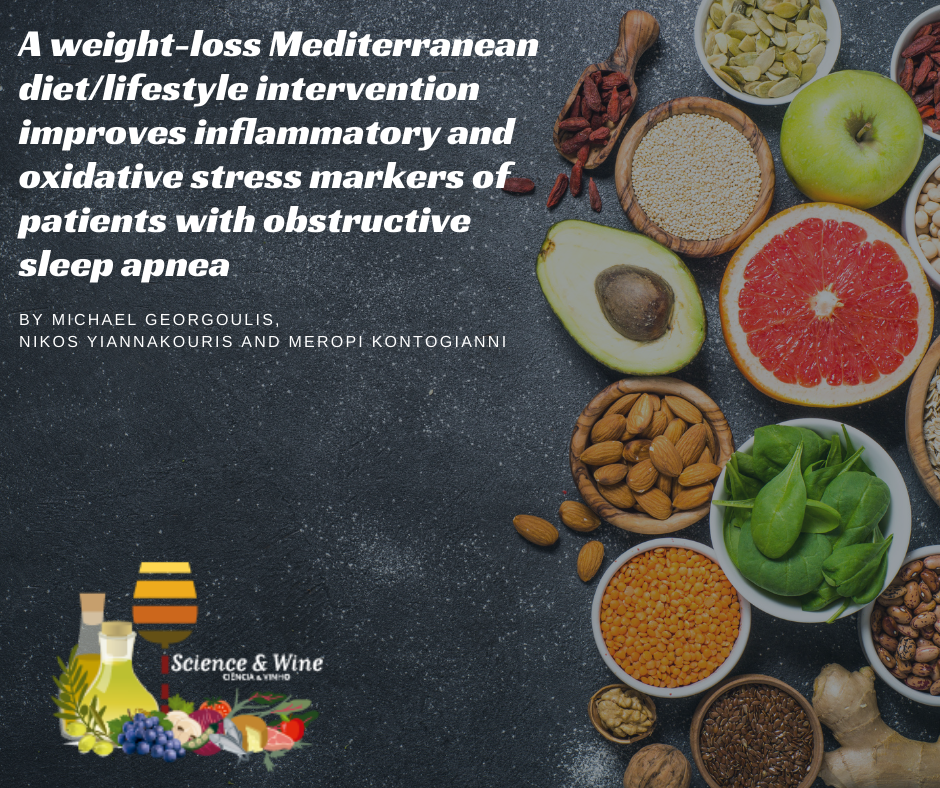
A weight-loss Mediterranean diet/lifestyle intervention improves inflammatory and oxidative stress markers of patients with obstructive sleep apnea
Inflammation and oxidative stress are implicated in obstructive sleep apnea (OSA) pathophysiology. We aimed at exploring whether the combination of a weight-loss Mediterranean diet/lifestyle intervention with OSA standard care, i.e., continuous positive airway pressure (CPAP) prescription, can lead to greater improvements in inflammation and oxidative stress, compared to standard care alone. This was a randomized controlled clinical trial in 187 adult, overweight patients with moderate-to-severe OSA. Participants were randomized to a standard care (SCG, n = 65), a Mediterranean diet (MDG, n = 62) or a Mediterranean lifestyle group (MLG, n = 60). All groups received OSA standard care. Intervention arms participated in a 6-month behavioral weight-loss intervention based on the Mediterranean diet, while the MLG also received counselling on physical activity and sleep habits. A weight-loss Mediterranean diet/lifestyle intervention on top of CPAP has anti-inflammatory and antioxidant benefits in OSA.
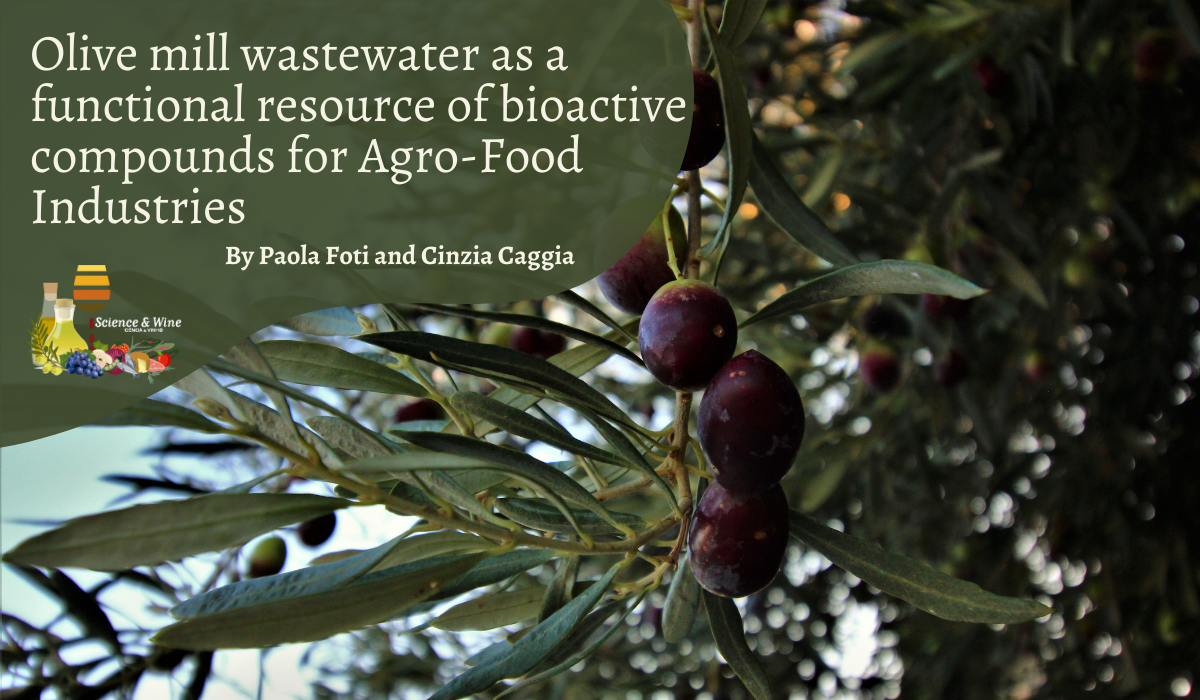
Olive mill wastewater as a functional resource of bioactive compounds for Agro-Food Industries
Olive oil production represents an agro-industrial activity of vital economic importance for many Mediterranean countries. However, it is associated with the generation of a huge amount of by-products, both in solid and liquid forms, mainly constituted by olive mill wastewater, olive pomace, wood, leaves, and stones. Although for many years olive by-products have only been considered as a relevant environmental issue, in the last decades, numerous studies have deeply described their antioxidant, anti-inflammatory, immunomodulatory, analgesic, antimicrobial, antihypertensive, anticancer, anti-hyperglycemic activities. Therefore, the increasing interest in natural bioactive compounds represents a new challenge for olive mills. Studies have focused on optimizing methods to extract phenols from olive oil by-products for pharmaceutical or cosmetic applications and attempts have been made to describe microorganisms and metabolic activity involved in the treatment of such complex and variable by-products. However, few studies have investigated olive oil by-products in order to produce added-value ingredients and/or preservatives for food industries. This post is based in a review which provides an overview of the prospective of liquid olive oil by-products as a source of high nutritional value compounds to produce new functional additives or ingredients and to explore potential and future research opportunities.
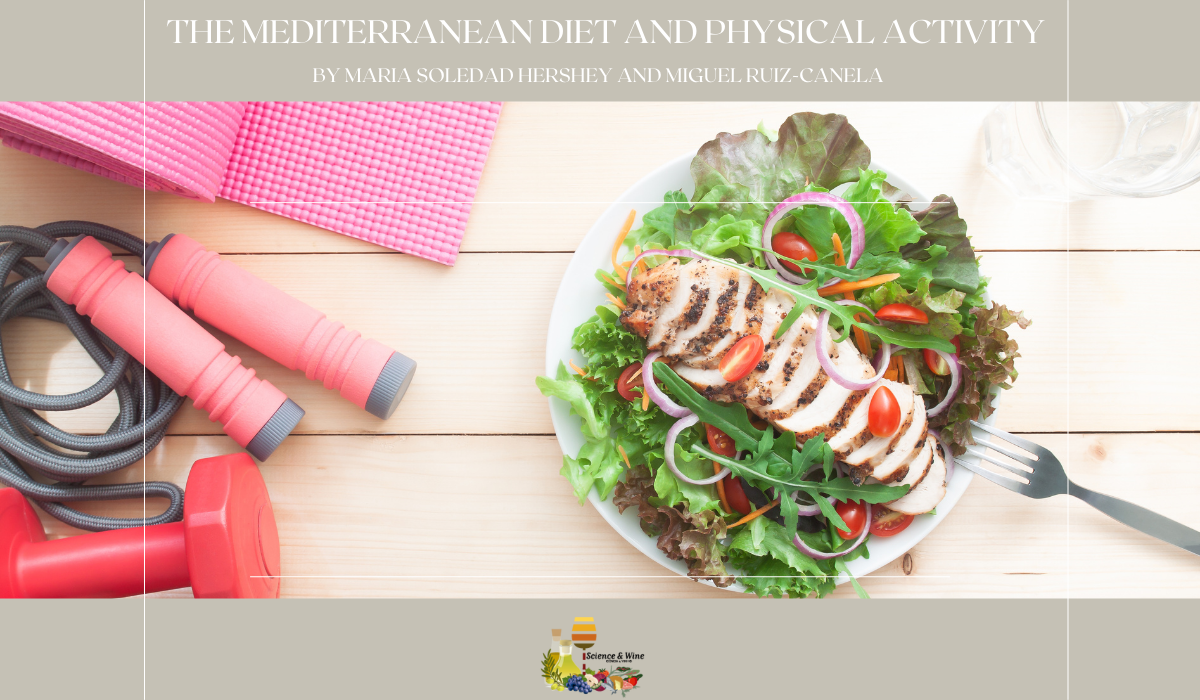
The Mediterranean diet and physical activity: better together than apart for the prevention of premature mortality
Diet and physical activity (PA) have been studied extensively in epidemiology as single or combined lifestyle factors; however, their interaction has not been studied thoroughly. Studying potential synergisms between lifestyle components with a comprehensive interaction analysis, including additive measures of interaction, provides key insights into the nature of their joint effect and helps target interventions more effectively. First, a comprehensive review was conducted to assess the potential research gap regarding reported interaction analyses conducted in studies assessing the Mediterranean diet (MedDiet) in combination with PA on all-cause mortality. Thereafter, we prospectively assessed the joint association of the MedDiet with PA on all-cause mortality in the Seguimiento Universidad de Navarra (SUN) cohort, followed by both multiplicative and additive interaction analyses. Studying interactions between lifestyle factors, such as the MedDiet and PA, is particularly relevant given the current research gaps in studying the complexities of combined aspects of lifestyle in comparison with isolated behaviours. Authors findings underline the important public health message of adhering to both the MedDiet and PA for the prevention of premature mortality.

Influence of low temperature and cultivar on mechanical extraction of high quality virgin olive oil
The malaxation step, one of the most important phases of the virgin olive oil (VOO) mechanical extraction process involved in the development of the main quality characteristics of the final product, was carried out at a low temperature (18 °C). The rapid control of malaxer temperature was handled with the same chiller as that of the heat exchanger used in a semi-industrial extraction plant. Low temperature was used during the full olive paste kneading process and also for half of this process, which showed that there was a significant impact on the phenolic and volatile contents of VOO. Trials were conducted on three different cultivars (Canino, Moraiolo and Peranzana), and their phenolic and volatile concentrations showed different quantitative and qualitative effects due to the prolonged use of low temperature after the crushing phase, as a function of the different genetic origins of the olives. The process of phenolic compound solubilization into the oily phase was negatively influenced by the use of low temperature during the entire malaxation period for all the cultivars, whereas the volatile fraction showed an improvement in VOO flavor mainly due to the oil extracted from Canino olives.


